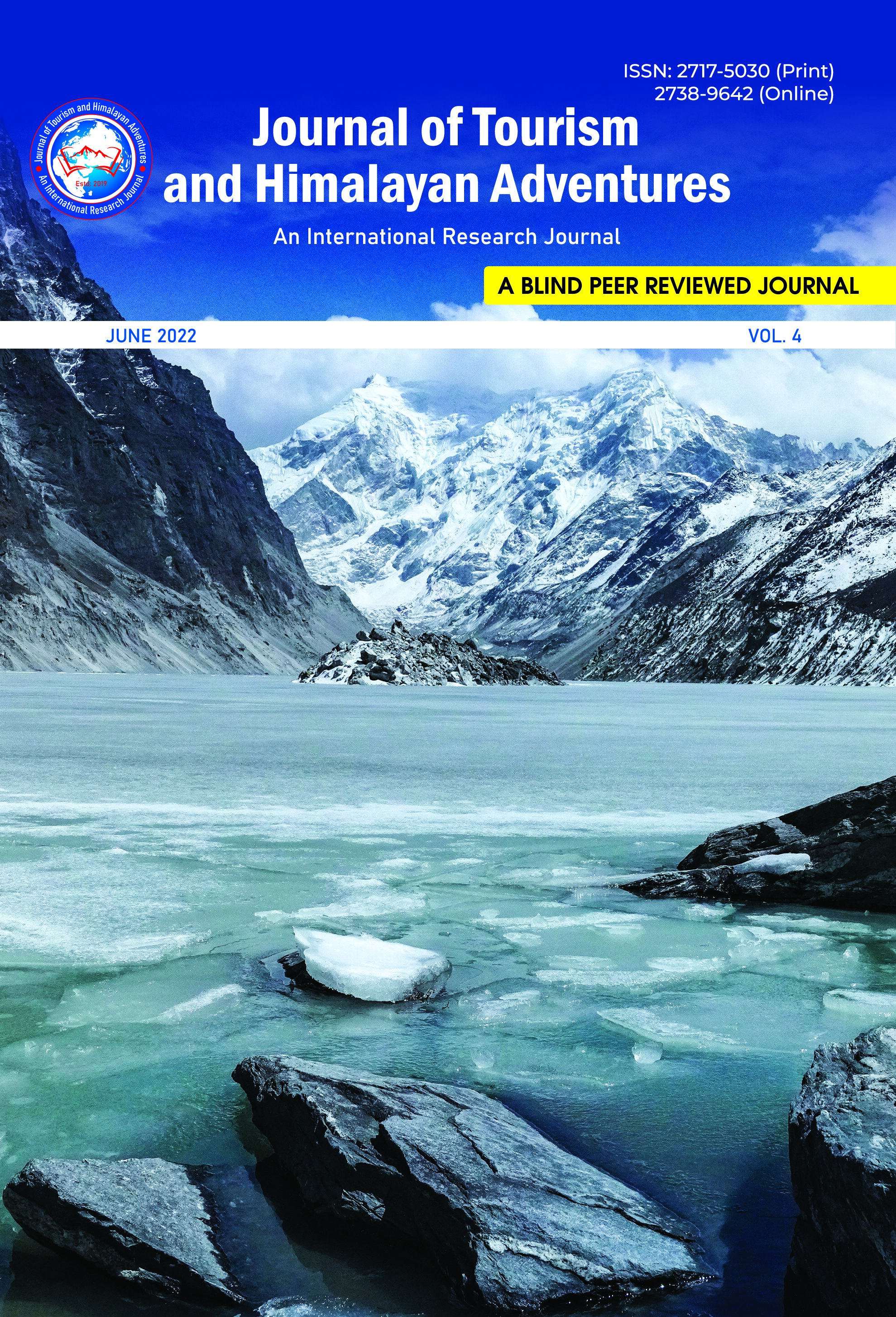Transitioning into Tourism: Becoming a Trekking Guide
DOI:
https://doi.org/10.3126/jtha.v4i1.46312Keywords:
Trekking guides, transition, qualifications, risk, NepalAbstract
Primary focus of this study centres around trekking guides’ perceptions and awareness on their chosen field of work. Attention is paid on highlighting their plight as well. Twenty-five Nepali trekking guides from Gorkha were interviewed at their place of work in Kathmandu to ascertain why they decided to enter into the trekking industry as a trekking guide. Reasons for becoming a trekking guide were explored using in depth interviewing techniques and a Grounded Theory approach to collect the data. The trekking guides transitioned into their career through travelling to Kathmandu in order to continue their education. They needed to support themselves by seeking out other employment opportunities. The livelihood of trekking guide provided this prospect for them. Qualifications in topography, antiquity, society, wildlife, trekking routes, high altitude sickness and emergency treatment, structural design, archaeology and religious belief in Nepal were all cited by the participants as being part of a qualification set required to work as a trekking guide. Many of the participants also spoke about risk in their employment. Risk to themselves and to the trekkers they guide were important themes to emerge from the research. Social welfare and financial aid policy and legislation for the families left behind to continue alone after trekking guide death would be one way forward for this revered and necessary group of Nepali workers to be recognized for the important work they do for their nation.




